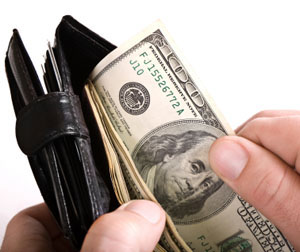- Home
- News
- Features
- Topics
- Labor
- Management
- Opinions/Blogs
- Tools & Resources
Fewer Americans Feeling Frugal, But No Sign Of Spending Splurge
By ANDREW DUGAN, Gallup— Nearly four years after the end of the Great Recession, fewer Americans are watching what they spend. The percentage of Americans who say they are “spending less money” has fallen to 41%, down from a high of 57% in 2010. Meanwhile, 26% of Americans say they are spending more money than they used to, and 32% the same amount.
The finding that 73% of Americans are either maintaining or decreasing the amount they spend is a potentially troubling sign, given that consumer spending contributes to about 70% of the economy.
Americans Who Are Spending Less Continue To Say It Is Their New Normal
Most Americans who are spending less see it as their new, normal behavior. The 41% who report they are spending less breaks down into 31% who say this will become a new, normal pattern for them, while 10% say it is only a temporary phenomenon.
The percentage of Americans who are spending less and say this is a new normal has remained relatively constant since 2009, with typically about a third of adults saying so.
However, the percentage of Americans who report spending less for what they believe is a temporary basis has declined sharply over this time span.
While it now represents one-tenth of the adult population, it was more than one-fifth in 2009, when the recession was in full force.
Conversely, Americans who now find themselves spending more money are more likely to see the situation as temporary (16%) rather than a new normal (10%), suggesting the increase in spending is not the result of increased earnings but rather due to more expenses.
Americans Nearing Retirement Most Likely To Be Cutting Back
U.S. stock market indexes have recorded new nominal highs several times this year, theoretically giving a boost to retirement portfolios along the way.
However, individuals closest to retirement age appear to be taking little comfort in a booming market — 46% of those aged 50 to 64 say they are spending less, the highest of any age group. While this is down markedly from 2010, when 60% in this age group reported spending less, it serves as a reminder that individuals on the cusp of retirement — a large cohort, given the size of the baby boomer generation — remain especially frugal even in the fourth year of the economic recovery.
Twenty-three percent are spending more, while another 30% are spending the same.
By contrast, 33% of those aged 18 to 29 say they are spending more money, higher than the percentage of all adults who say so.
This might seem counterintuitive, given reports that the recession and ensuing sluggish recovery have been especially difficult on young adults, particularly in terms of employment.
However, many young adults find themselves acquiring a new financial stature at this period in their lives: many do not have children or mortgages and thus have more disposable income, and their spending habits reflect this heightened purchasing power.
ImplicationsFor Jobs And The Economy
The U.S. economy has continued to face formidable challenges in the aftermath of the recent recession, including prolonged high unemployment and stagnant incomes for much of the country.
At the same time, there are sure signs of economic recovery, such as the booming stock market and a declining unemployment rate.
In the midst of these economic forces, the decreasing percentage of Americans who report they are spending less money is a notable trend, and supports the increase in self-reported consumer spending Gallup has seen since late 2012.
This suggests the possibility that an increasing percentage of adults have seen their personal financial situations stabilize or improve, providing the impetus for even more Americans to ease their recession-induced budget slashing in the future.
Source: Gallup Economy
List your business in the premium web directory for free This website is listed under Human Resources Directory





